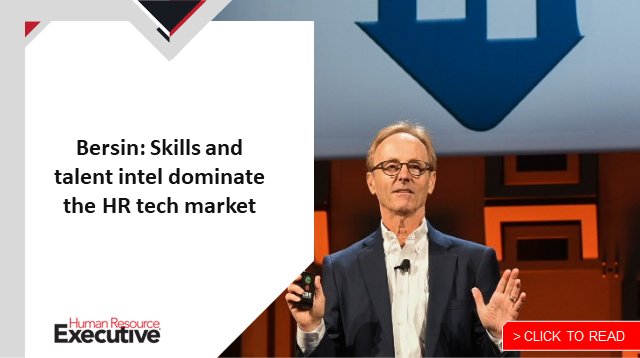If HR tech vendors thought that the post-pandemic years would mark a return to normal times, they are in for a surprise—because, while the people who buy and implement HR technology solutions have relatively the same budget as in previous years, they are now looking for more support, better reporting and solutions that are a part of the HR ecosystem. So, HR tech vendors are going to need to step it up.
The “year of grace” that HR and tech buyers gave to vendors in light of the pandemic is over, said Stacey Harris, chief research officer for market research firm Sapient Insights, in Thursday’s HR Technology Conference keynote address, “The Public Debut of the 25th Annual Sapient Insights HR Systems Survey Key Findings.” (The complete survey will be officially released next month.)
In Sapient’s annual survey of HR leaders at small, medium and large organizations, nearly all continue to struggle to manage their technology, said Harris.
Among the highlights from Harris’ bracing presentation are some serious issues among organizations and vendors: For instance, there was a 30% increase in respondents saying that a reporting functionality gap exists (“Reporting is a nightmare for organizations,” said Harris.), while vendor satisfaction dropped “dramatically” in learning, analytics and compensation apps and user experience satisfaction with HR solutions dropped to 7%.
 The average expected increase in HR tech spending is 21%, but survey respondents are also impatient and dissatisfied with increasing vendor costs. “Being nickeled and dimed and paying for new modules was a big response. Buyers are struggling with this,” said Harris.
The average expected increase in HR tech spending is 21%, but survey respondents are also impatient and dissatisfied with increasing vendor costs. “Being nickeled and dimed and paying for new modules was a big response. Buyers are struggling with this,” said Harris.
It wasn’t all cold water to the face for HR tech vendors. There are plenty of signs of opportunities. Sapient found that very small companies with as few as five employees are interested in performance management systems, for example.
That said, HR technology vendors and consultants need to revamp how they speak with new and current clients, and they should stop selling functionality to HR leaders immediately. “Stop talking about systems,” said Harris. “Talk outcomes. Buck the system. Help those companies get to those outcomes.”
When it comes to specific functionalities HR leaders are looking at, more than half of time and payroll apps are in danger of flipping in the next 12 to 24 months, Harris said, while none of the organizations surveyed are sending and sharing DEI metrics on a monthly basis and only 13% of surveyed companies are leveraging earned wage access solutions.
At the same time, recruiting—as well as learning and career development—remains a top priority for HR tech spending plans even with concerns of a possible economic slowdown. “Companies are still struggling to recruit and hire new talent,” she said.
To address these and other challenges, HR leaders must broaden the role of HR technology and how it is used in their firms, Harris said. If a new tool is being looked at solely to address compliance, for example, the implementation is doomed to fail.
 “When looking at HR systems, it’s not a standalone system but an entire ecosystem,” said Harris. “As we share data, think about your role in the organization. How do you get people excited about new solutions?”
“When looking at HR systems, it’s not a standalone system but an entire ecosystem,” said Harris. “As we share data, think about your role in the organization. How do you get people excited about new solutions?”
The upcoming Sapient report also found that HR leaders need to rethink their role within the enterprise in the next three years. Forty-six percent of survey respondents said HR is viewed as contributing strategic value; Harris said that numbers should be at 55% by 2025.
“If we want to get to 55% by ’25, we need to shift from a best-practice function to a defined-outcomes business,” she said.


